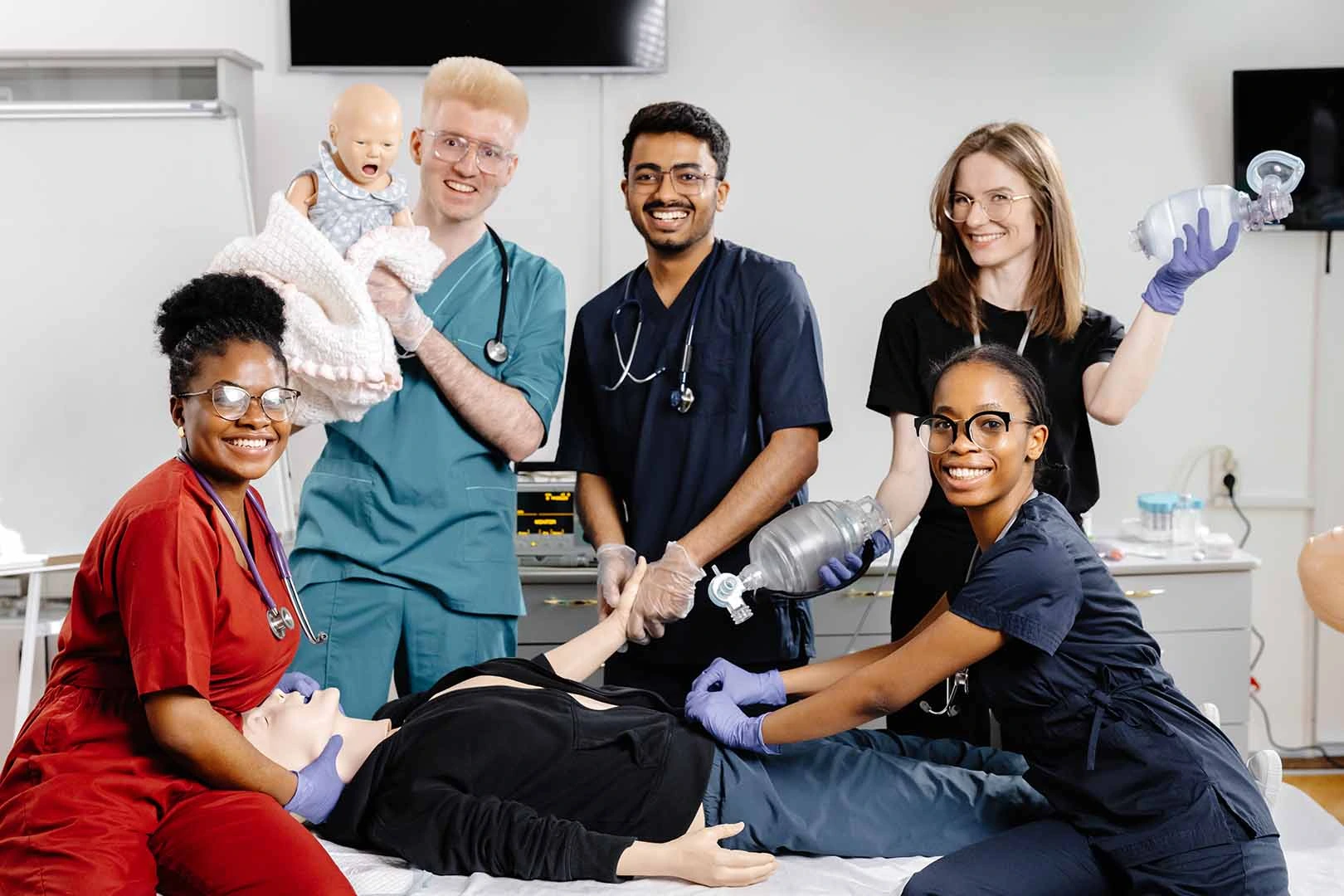How Pre-Allied Health Helps Your Medical Career

• Pre-Allied Health programs build essential skills through General Biology and Anatomy & Physiology courses.
• Gain hands-on laboratory experience to master diagnostic techniques and prepare for real-world healthcare scenarios.
• Medical field training through internships and externships offers practical exposure and career clarity.
• With healthcare occupations expected to grow by 13% through 2032, graduates enjoy strong job prospects and career advancement opportunities
For students pursuing careers in healthcare, a strong academic foundation is essential. Pre-Allied Health programs provide exactly that—building the knowledge and skills necessary for advanced studies in health professions. These programs lay the groundwork by covering fundamental subjects such as General Biology and Anatomy & Physiology, while offering hands-on laboratory experience to simulate real-world medical scenarios. Whether you aim to become a nurse, lab technician, or physical therapist, Pre-Allied Health education serves as a critical stepping stone toward specialized medical training.
Why Pre-Allied Health Is Worth It
The demand for healthcare professionals is growing rapidly. According to the U.S. Bureau of Labor Statistics, healthcare occupations are expected to grow by 13% from 2022 to 2032, significantly faster than the average for other fields. This translates to about 1.9 million job openings annually due to expansion and the need to replace retiring workers. With aging populations and the increasing prevalence of chronic conditions, roles such as lab technicians, radiologic technologists, and medical assistants are becoming even more essential in both acute and outpatient care settings.
In fact, median wages for healthcare workers also reflect the demand: healthcare practitioners earn a median of $80,820 annually, much higher than the $48,060 median wage across all occupations. Even healthcare support roles, like medical assistants, offer solid career prospects with opportunities for growth into more specialized positions.
The blend of academic rigor and practical training makes Pre-Allied Health programs a smart choice for anyone looking to break into healthcare—a field with excellent career prospects, solid wages, and long-term job security.
How Pre-Allied Health Programs Prepare You
Core Subject Mastery
Courses like General Biology and Anatomy & Physiology lay the groundwork for a deep understanding of human health and biological systems. These subjects cover essential topics such as cellular biology, human organ systems, and physiological processes—critical knowledge for future healthcare providers. For students pursuing nursing, physical therapy, or medical lab careers, mastering these subjects is non-negotiable. Biology introduces the building blocks of life, helping students grasp how diseases affect the body, while anatomy focuses on the structure and function of the body’s systems. This early mastery ensures smoother transitions into more specialized coursework, like pharmacology or pathophysiology, and prepares students for the rigorous demands of healthcare programs.
Practical Skills Through Laboratory Work
Hands-on laboratory experience is a key feature of Pre-Allied Health programs, providing students with essential practical skills. Through experiments and lab exercises, students become familiar with tools and techniques they’ll use in clinical settings, such as microscopy, blood analysis, and specimen preparation. These labs simulate real-world scenarios, helping students develop critical thinking, troubleshooting skills, and attention to detail. Confidence gained in the lab translates directly to patient care environments, where precise action is often needed under pressure. According to industry experts, employers increasingly seek candidates with lab experience because it ensures a faster learning curve on the job, especially in roles like medical lab technicians and diagnostic specialists.
Medical Field Training in Action
Pre-Allied Health programs emphasize medical field training through internships, externships, and volunteer placements. These opportunities provide a taste of healthcare’s real-world challenges, offering students exposure to hospitals, clinics, and outpatient settings. Beyond technical skills, this training develops essential soft skills like teamwork, patient interaction, and problem-solving—qualities that employers highly value. With field experience under their belt, students become better prepared to step confidently into professional roles, whether as medical assistants, lab techs, or radiologic technicians. This practical exposure helps students refine their career paths and identify the healthcare roles best aligned with their interests and strengths.
Career Growth and Flexibility
Take Lackawanna’s Pre-Allied Health program to explore various healthcare career options before committing to a specific field. Pre-Allied Health programs cater to a wide range of interests, giving students the flexibility to delve into different paths like nursing, respiratory therapy, or diagnostic imaging—areas with growing job prospects. For instance, employment for physical therapists is projected to grow by 18%, and lab technicians are expected to see steady demand due to the essential nature of diagnostic testing.
Explore our Admissions and Enrollment page to learn about the diverse career pathways offered through our Medial Field programs and embark on your path to a successful future at Lackawanna College.
